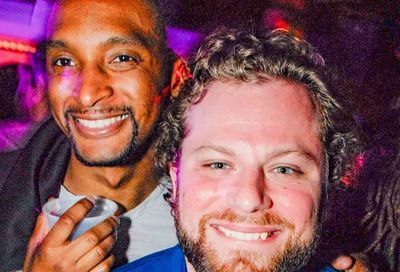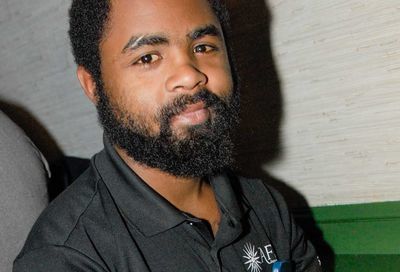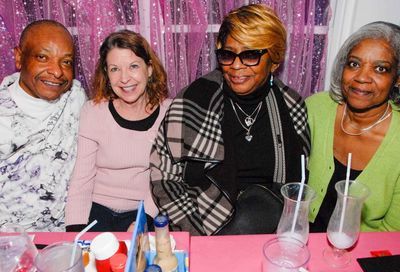Queer Cash
While gay and lesbian purchasing power may be on the rise, what does that mean for the GLBT community?
In the midst of tax season, thoughts inevitably turn to money. For gay people, especially couples, those thoughts might get pretty complicated. It may walk like a married couple and talk like a married couple, but as far as the IRS is concerned, it’s not a married couple. Regardless of how the taxes are paid, whatever is left translates into ”buying power.” And according to projections, the GLBT community’s buying power is on the rise.
According to The U.S. Gay and Lesbian Market, the study jointly released by Packaged Facts and Witeck-Combs Communications, the D.C.-based, gay-owned marketing and communications firm, 2006 GLBT buying power is projected to be $641 billion. That’s up more than $30 billion, compared to the 2005 estimate of $610 billion.
”Every two years, we help market the report,” says Bob Witeck, CEO of Witeck-Combs, adding that his firm has been a partner in this effort since 2000. ”With the co-authors, we help come up with the methodology. Â… We provide content for it, but we don’t make a nickel off it.”
The nickel goes to Packaged Facts parent, MarketResearch.com, who offers the analysis for $3,500. Obviously, with that sort of price-tag, the study is aimed at institutions like libraries and companies. Witeck can offer some insight into what those customers are looking at, though.
”The range of [GLBT] population estimates is 9 million to 22 million. That’s the range we’ve seen. We came up with 15-to-16 million,” he explains. ”The buying-power average is $41-$42 thousand. It doesn’t tell a story that we’re all affluent. Â… Women earn less than men across the board. There are gender and racial gaps.”
While also pointing to a disparity that leaves gay men earning less than their straight counterparts, Witeck points to several reasons that GLBT buying power is nonetheless on the rise. ”There are more people every year, so buying power goes up nationally,” he says. ”And every year there are more of us [GLBT people] — more of us come out. Third, earning power across the board has grown.
”We’ve witnessed a lot of hype about gay households,” Witeck continues. ”A lot of people look at the numbers and say, ‘Wow, that’s a lot of money.’ But we’re a lot of people. We’re also disproportionately more urban than rural, and slightly more male.” And don’t forget all those double-income, no-kids households, he says.
Per Larson, the New York-based author of 1997’s Gay Money, a financial planning guide for gay people, says that studies like this one may be of use to the companies marketing to the gay community, but are otherwise detrimental.
”It’s of absolutely no relevance to the gay community, in my opinion,” says Larson, whose credentials include an MBA from the Wharton School; founding Affording Care, a non-profit organization providing financial advice to those with serious illness; and several articles regarding the personal financial difficulties posed by HIV/AIDS. ”[These studies] portray the gay community as being very moneyed. We may have considerably more discretionary income, but it varies greatly depending on what stage of life we’re in.”
Says Larson, ”In our 20s, we have a considerable amount of discretionary income. In our 30s, we do alright. In our 40s and 50s, the ‘lavender ceiling’ is very much alive and kicking. Â… The more we are portrayed as wealthy — and all the negatives that go with that in America — the far right will use that against us. The marketer is not a friend of the community, in my opinion.”
While Witeck seems to agree with Larson on the point that enemies of the GLBT community may try to use data to characterize the community as disproportionately affluent, and therefore somehow less needful of civil-rights protections, that is where the agreement seems to end.
”Wes and I have a mission to educate people about the market,” Witeck says, referring to his business partner, Wes Combs. ”[Packaged Facts] came to us because they viewed us as experienced on lots of these topics.”
Packaged Facts isn’t the only company knocking on Witeck-Combs’s door for insight into GLBT consumers.
”Wes went down and spoke at Wal-Mart in December,” Witeck says, explaining that the world’s largest retailer invited Combs to company headquarters in America’s heartland — Bentonville, Ark. — to speak with about 100 members of management. ”If you’ve got Wal-Mart talking about this, you’ve connected with a lot of companies. Â… There is growth in the advertising arena, the marketing arena.”
The merits of this increasing corporate attention toward the GLBT community is apparently debatable, if Witeck’s and Larson’s views are any indication. But debate in the gay community is as inevitable as death and taxes.
Support Metro Weekly’s Journalism
These are challenging times for news organizations. And yet it’s crucial we stay active and provide vital resources and information to both our local readers and the world. So won’t you please take a moment and consider supporting Metro Weekly with a membership? For as little as $5 a month, you can help ensure Metro Weekly magazine and MetroWeekly.com remain free, viable resources as we provide the best, most diverse, culturally-resonant LGBTQ coverage in both the D.C. region and around the world. Memberships come with exclusive perks and discounts, your own personal digital delivery of each week’s magazine (and an archive), access to our Member's Lounge when it launches this fall, and exclusive members-only items like Metro Weekly Membership Mugs and Tote Bags! Check out all our membership levels here and please join us today!




















